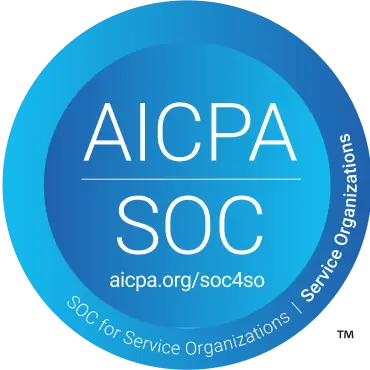
The ERC for church and non-profit organizations
Your church or non-profit organization may qualify for a significant refund through the Employee Retention Credit (ERC), even if it received PPP loans.
Determine EligibilityThe impact of the pandemic on religious organizations
The impacts of COVID-19 weren’t just limited to businesses. Churches and religious organizations were impacted greatly. In fact, life after the pandemic is still far from normal.
Here’s what our customers had to say:
reported suspending in-person worship services for some time, according to a November 2021 survey.
experienced a decline in attendance over the past two years in their place of worship, according to a March 2023 survey.
struggled to adapt to new government regulations.
This drop in parishioners likely means a drop in donations. Which means your budget could be stretched thin.

What is the ERC?
Have you heard of the Employee Retention Credit (ERC)?
It’s a payroll tax refund that’s meant to help eligible businesses that kept employees on payroll during the COVID-19 pandemic.
If your church or non-profit organization underwent either a significant decline in gross receipts and/or fully or partially suspended or reduced any significant part of its operations due to any local, federal, or state mandate during 2020 or 2021, then you could be eligible for a payroll tax refund from the U.S. Treasury.
The program was originally developed to encourage and support employers who retained existing employees throughout 2020 and for the first three quarters of 2021 by offering a generous payroll tax refund through the IRS. Eligible recipients can receive a refund of up to $5,000 per employee for all of 2020 and up to $7,000 per employee kept on the payroll for each quarter for Q1 through Q3 of 2021.

How was your church or non-profit affected*?
In the same way that supply chains have been drastically upended by the pandemic, so too have many congregational ministry systems been disrupted.
Did your church or non-profit experience these challenges?
Restrictions to operating hours
Capacity limitations - drastically reducing the congregations
Cancellation of events (church services, weddings, etc.)
Clergy and other employees forced to work remotely
In-person services had to be held online
Experienced a significant decline in gross receipts
Limited travel due to government order
The ERC is available to employers of any size, including tax-exempt organizations. Church organizations faced unique challenges during the pandemic and are still feeling the effects today. Let’s walk you through a few criteria that may help your business qualify for the ERC.
Success stories from businesses in the church and non-profit industries
Innovation Refunds was spot on with their service and patience. I'm extremely busy and was reluctant to jump into this for fear it was going take up a bunch of my time. Thankfully, my part was relatively simple and Innovation Refunds did the rest. I was impressed with their service and expertise.


Warren County YMCA
We chose to work with Innovations Refunds for our Employee Retention Credit opportunity. The company was very responsive and kept us informed through out the process. Knowing that this was a time consuming process, Matthew Tidman, our customer service representative made sure we were kept up to date along the way.


Oliver Hazard Perry Rhode Island, Inc.
Chavis Keller was a pleasure to work with. He was very professional and kept up on things throughout the period from application to check receipts. Thank you for making the process non-stressful.


Neighborhood Housing Services of Brooklyn (Bedford-Stuyvesant) CDC, Inc.
We work for you, with no upfront fee
Our independent tax attorneys have extensive knowledge of ERC qualifications and IRS tax code to help eligible churches and other non-profits claim their refund.
How can church organizations use the ERC refund?
For churches and organizations that qualify for and use the ERC, there are many uses for putting the refund to good use – things like paying debts, operating expenses, hiring and retaining employees, and more:

Financial relief

Eliminating debt

Investment in technology for remote congregational services

Boosting cash revenues

Offer pay increases and retain top talent
ERC qualifications for the church and non-profit sector*
A couple of quick points about qualifying for the ERC:
-You must be an eligible employer, which includes tax-exempt churches and other religious organizations.
-Qualified wages are defined under IRC Section 3121(a) for FICA taxes. While this code section works for most employers, it does not work well for religious organizations employing ministers. Wages paid to ministers are not wages for IRC Section 3121(a). (Wages to ministers must be omitted under this section.)
-Your religious or non-profit organization must have experienced a significant decline in gross receipts, typically defined as a drop of 50% or more compared to the same quarter in 2019. Note that gross receipts mean all contributions, investment income, sales of investments, royalties, rents, and fundraising income.
-You may also qualify if your operations were fully or partially suspended due to government orders. For example: A church is deemed an essential business, but the government orders it to limit its capacity to 50% of its worship facilities. This may meet the partial shutdown test.
How we’ve helped eligible businesses, including those in the church and non-profit sector, file for the ERC:
1
Qualifying them for government shutdown orders
2
Determining eligibility under limited commerce
3
Outlining COVID’s impact beyond reduced revenue
With the ERC, qualifying companies could receive a refund to help cover remote congregation services, offer competitive employment incentives, and expand services.

It’s easy to get started and see if you are eligible for the ERC*
Originally, the ERC was not accessible for businesses that took part in PPP funding. This means that many employers took out PPP loans in 2020 but skipped the ERC.
However, the program has undergone expansion, and under new rules, you can claim ERC and PPP. This was removed by Congress in the Consolidated Appropriations Act (CAA) of 2021.
Frequently Asked Questions
It’s easy to get started and see if you qualify for ERC assistance. Our independent tax attorneys will help determine your business’ eligibility, check for missing documentation, calculate your refund, and submit your claim if you qualify.
*Innovation Refunds works with a team of independent tax professionals. We will share your information with these professionals to evaluate and process your claims. Innovation Refunds does not provide tax or legal advice. Terms & conditions apply.








